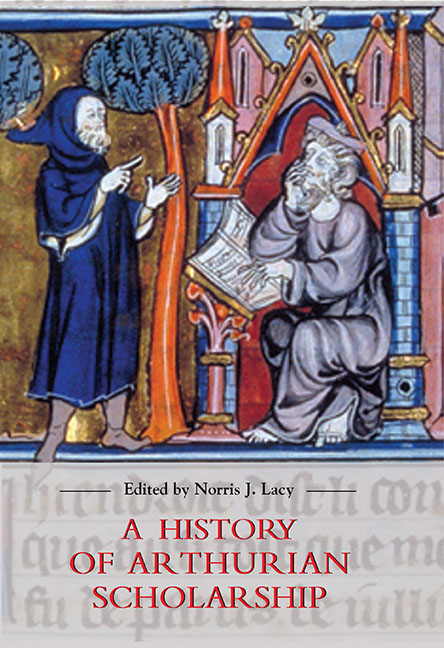English Arthurian Literature
Published online by Cambridge University Press: 18 March 2023
Summary
The medieval English texts to which Arthurian scholarship has addressed itself are various in size and shape. Ranging from cursory chronicle treatments of Arthur's reign to Sir Thomas Malory's full realisation of the Arthurian legend, theMiddle English tradition and the body of scholarship that has attended it are correspondingly diverse. ‘Gawain-poet studies’ and ‘Malory studies’ have come to constitute scholarly fields in their own right, La_amon's Brut (c. 1185–1225), the Alliterative Morte Arthure (c. 1360–1400) and the Stanzaic Le Morte Arthur (c. 1400) have commanded a good deal of critical attention, and a substantial number of studies of lesser known Arthuriana has accumulated.
The range of approaches adopted by Middle English Arthurian scholarship has likewise been varied. Source-studies, myth-studies, textual criticism, philology, historicism, structuralism, psychoanalysis and feminism all feature to differing degrees in the composition of the field. A concise history of the subject can only begin to indicate the extent to which certain of these scholarly approaches overlap and interrelate: the plurality of scholarly practice at any given time resists schematisation and allocation to discrete time-frames. Yet, in broad outline, a survey of the field reveals how Middle English Arthurian scholarship evolves through four dominant phases. In the first, we encounter such scholars as Frederic Madden and Frederick Furnivall for whom considerations of philology, biography and history predominate. In the second, pioneered by such figures as George Lyman Kittredge and later Roger Sherman Loomis, study of sources and analogues is emphasised, a trend that shades in some quarters into myth-criticism. In the third phase primacy is restored to the textual matter, meaning and structure in Arthurian works in a trend led by L.D. Benson, J.A. Burrow, R.M. Lumiansky and others. In the fourth and most recent phase, new trends of critical historicism hold sway, as does the increasing application of modern literary theory to English Arthurian texts.
The corpus of medieval English Arthurian texts being modest in size, the dominant trends in scholarship have been defined principally by study of three central works, Sir Gawain and the Green Knight, the Alliterative Morte Arthure and Sir Thomas Malory's Morte Darthur. It was with the editing and early critical reception of these three works that the field was first defined, contributing in the same period to the formation and development of medieval English studies more broadly.
- Type
- Chapter
- Information
- A History of Arthurian Scholarship , pp. 140 - 157Publisher: Boydell & BrewerPrint publication year: 2006



